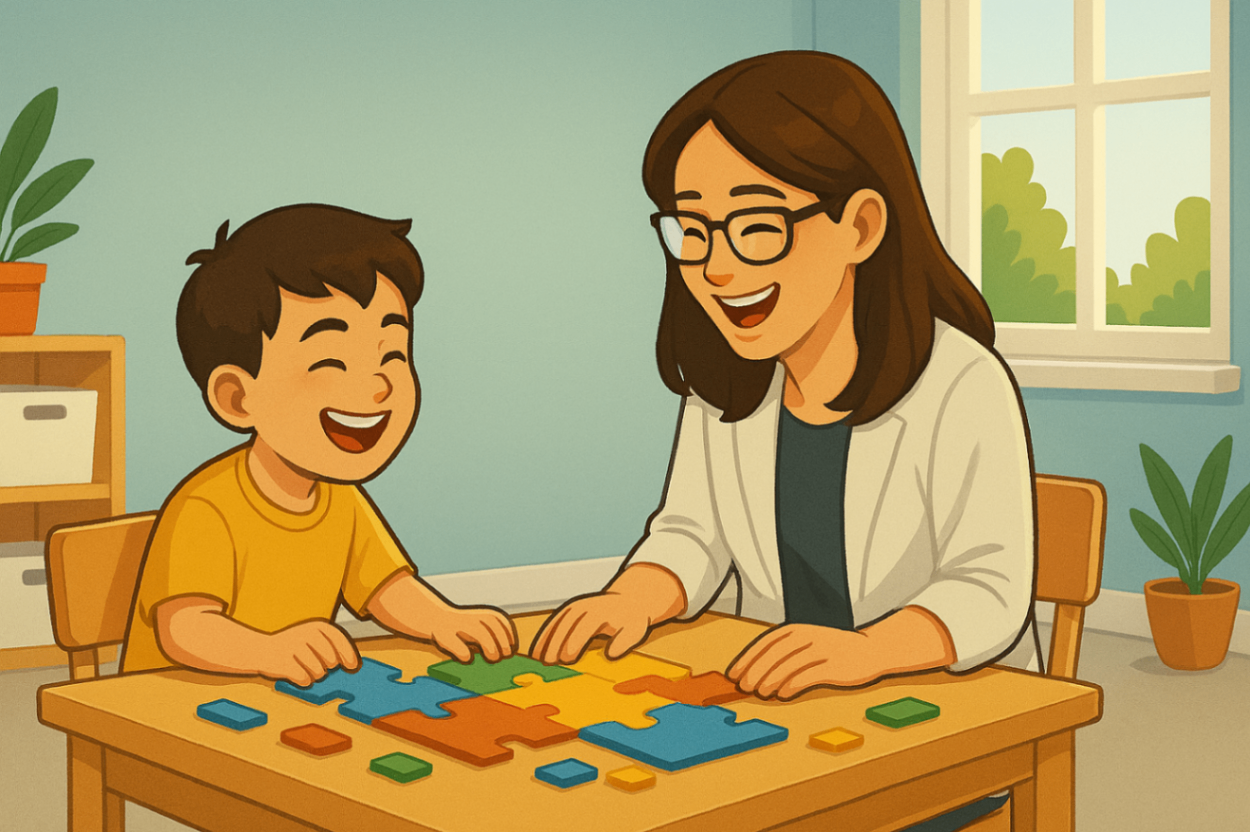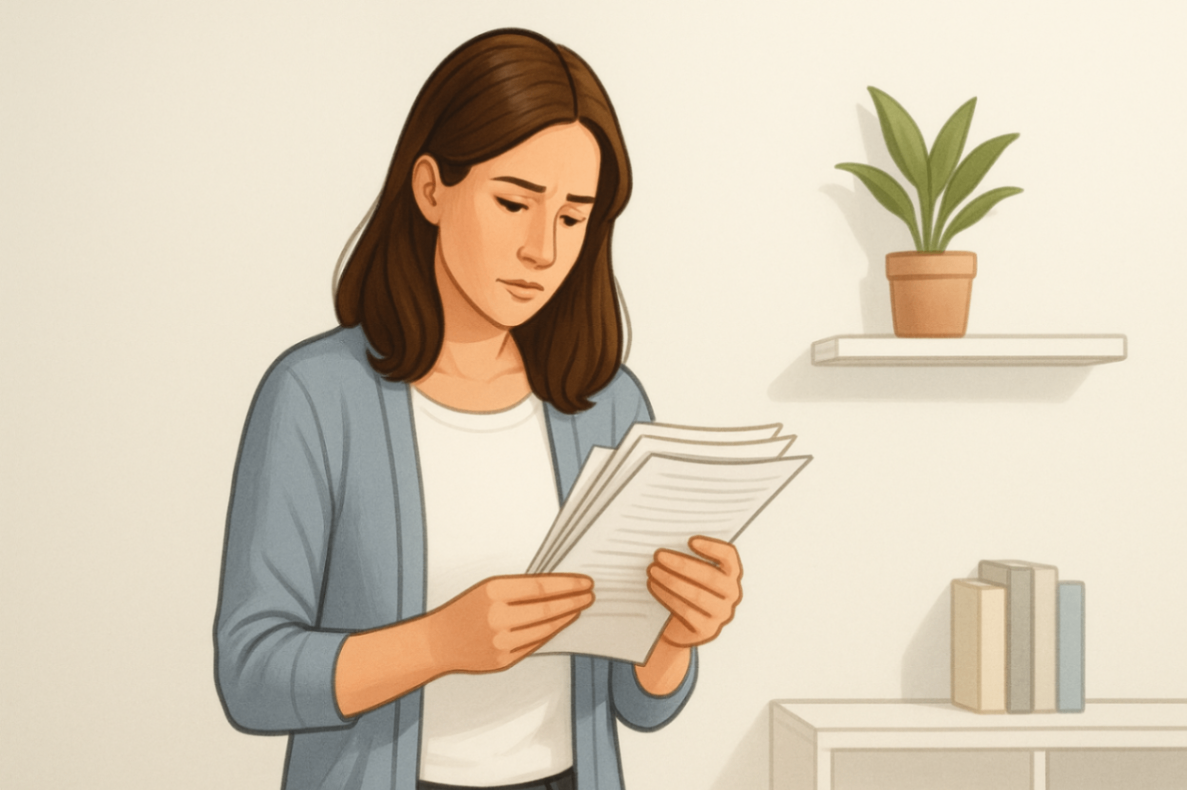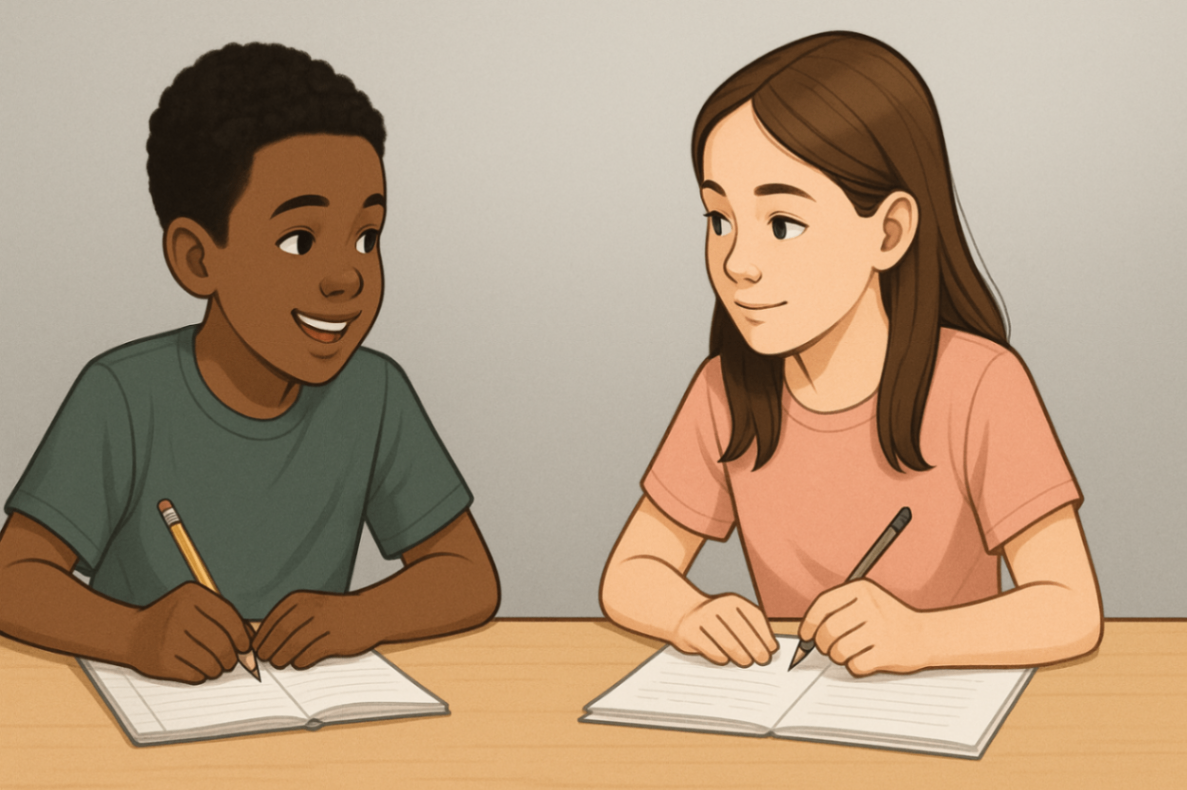Latest Update: November 20, 2025
How NDIS Behaviour Therapy for Autism Changes Lives
Behaviour therapy plays a vital role in supporting autistic children to build communication, emotional regulation, and daily living skills. At daar, in Liverpool and surrounding suburbs such as Casula, Moorebank, Prestons and Wattle Grove, our NDIS‑funded therapy services combine evidence‑based methods like Applied Behaviour Analysis (ABA), Positive Behaviour Support (PBS), and parent‑led interventions.
This localised approach ensures meaningful outcomes under your child’s NDIS plan, guiding them toward greater independence and participation. Early autism intervention is especially effective for children under nine, helping reduce developmental delay and enhance well‑being.
Key Highlights
-
Behaviour therapy under the NDIS for autism supports autistic individuals in developing daily living, social, and emotional regulation skills.
-
NDIS funding includes both capacity building and core supports to help individuals access therapies tailored to their specific autism diagnosis.
-
Behavioural support is part of your NDIS autism plan and often includes Positive Behaviour Support (PBS) and other targeted interventions.
-
Early intervention is vital—especially for children under 9—to reduce developmental delay and enhance independence.
-
Families in Liverpool, Casula, Prestons, Moorebank, and surrounding suburbs can choose their own autism support workers and therapists with guidance from their LAC or plan manager.
What Is Behaviour Therapy for Autism under the NDIS?

Behaviour therapy helps a lot in the support system set up by the National Disability Insurance Scheme (NDIS) for people on the autism spectrum. This therapy is needed to give help that fits what each person needs. It can help with things like social communication, daily life tasks, and feeling good overall. Talking to health professionals and local area coordinators (LACs) during your NDIS planning meetings is important. It can make sure that people get the right funding in their personal plans. This helps them grow, learn new skills, and become more independent as part of the autism community.
Evidence-Based Behaviour Therapy for Autism
Recent research under the Autism CRC and the National Disability Insurance Agency (NDIA) highlights that behavioural interventions for children on the autism spectrum deliver best outcomes when:
-
they are individualised to the child’s strengths, triggers and environment; Data Research.
-
they involve family/caregiver training and embed interventions across home, school and community;
-
progress is measured via functional-capacity improvements (rather than solely behaviour reduction); and
-
services align with NDIS practice requirements (including behaviour support guidelines). NDIS Quality and Safeguards Commission
This means for 2025, families should look for providers who offer goal-driven therapy, track measurable outcomes (e.g., increase in school participation, reduction in time out of class), and link these outcomes to the child’s NDIS plan goals.
Common Behavioural Approaches under NDIS for Autism
There are many ways to help people on the autism spectrum.
-
Applied Behaviour Analysis (ABA): Builds skills by reinforcing positive behaviours
-
Cognitive Behaviour Therapy (CBT): Helps children manage anxiety and emotions
-
Positive Behaviour Support (PBS): Focuses on understanding and addressing the reasons behind challenging behaviours
-
Parent-Child Interaction Therapy (PCIT): Strengthens the family’s ability to support behavioural and emotional growth
Each approach is personalised and can be delivered by an experienced autism support worker, psychologist, or behaviour therapist depending on the plan.
How Behaviour Therapy Fits Into Your NDIS Plan

When you’re navigating your child’s NDIS plan, understanding how behaviour therapy is funded and how it bridges into your supports is key. The NDIS autism support framework offers a range of behavioural services through two key funding categories, particularly for autism NDIS plans:
-
Core Supports: Daily assistance, including in-home support from an autism support worker, which is typically covered by core funding.
-
Capacity Building: Behaviour therapy, emotional regulation strategies, and social skills programs
Your plan may also include:
-
Behaviour assessments
-
Individualised behaviour support plans
-
Parent training and family counselling
-
Crisis management and therapy reviews
For a more detailed breakdown of how NDIS support plans are structured and funded, you can refer to our NDIS Support Plan Guide.
NDIS Eligibility Criteria for Autism
NDIS looks at how much a person's abilities are affected by autism to check if they are eligible. The process uses rules found in the latest version of the Diagnostic and Statistical Manual of Mental Disorders, DSM-5 book. The table below shows the main things you need:
|
Eligibility Criteria
|
Requirements
|
|
Age
|
You need to be between 0 and 65 years old
|
|
Residency
|
You must be an Australian citizen, have a permanent visa, or a Protected Special Category visa
|
|
Autism Diagnosis
|
You must get your autism diagnosis from a medical specialist who works with autism assessments and support services.
|
|
Support Needs
|
You must have trouble taking care of yourself, talking to others, or being independent
|
People who have Level 2 or 3 ASD are usually able to get support right away. Those with Level 1 ASD may have to show extra proof of how the disability affects their life. NDIS works to give the right help if someone's daily life is affected by autism, including early help such as therapy for developmental delay. This is to give everyone the best chance to do well every day.
Behaviour Support Plan Examples for Children With Autism
 A behaviour support plan for kids on the autism spectrum is made to meet their own needs and make sure there is the right support. For example, one way is to use visual schedules. These can help with social communication, especially when kids have to switch from one thing to another. There is also another way where positive actions get noticed with rewards, making it easier for children to control themselves.
A behaviour support plan for kids on the autism spectrum is made to meet their own needs and make sure there is the right support. For example, one way is to use visual schedules. These can help with social communication, especially when kids have to switch from one thing to another. There is also another way where positive actions get noticed with rewards, making it easier for children to control themselves.
Effective behaviour support plans are built around goals, triggers, and strategies. Here are two simplified behaviour support plan examples:
Example 1: Supporting Transitions
-
Issue: Meltdowns during routine changes
-
Strategy: Use a visual schedule and countdown timer
-
Outcome: Reduced anxiety and smoother transitions
Example 2: Social Skill Building
-
Issue: Difficulty initiating play
-
Strategy: Role-play social scenarios with an autism support worker
-
Outcome: Increased participation in group activities
Each plan is reviewed regularly and customised to align with your child’s NDIS autism goals. Want to understand how behaviour support plans work in everyday settings? Our Parent Guide to Behaviour Support Plans Under the NDIS provides step-by-step examples and real-world tips.
How to Access NDIS Autism Support for Behaviour Therapy
Accessing NDIS autism spectrum disorder support for behaviour therapy starts when you fill out an access request form. This form is very important for showing that you can get help through the National Disability Insurance Scheme. You need to have a clear autism diagnosis, and it should follow what is written in the DSM-5. It is also a good idea to collect paperwork, like recommendations from health professionals.
A local area coordinator (LAC) can help you with each step. They can guide you in the process and help you find the best service providers for your needs. With this kind of support, you can be sure your individual needs are understood. You will then get the right autism support from the NDIS. This way, the help you get will suit you well and cover what you need. If you’re still navigating the system, check out our Guide to Accessing NDIS Autism Support in Liverpool to better understand the local process and supports available near you.
Steps to Apply for NDIS Funding
Getting NDIS funds means you need to do these things:
-
Complete the Access Request Form: You can find this form on the NDIS website. It asks for your details as an NDIS participant.
-
Submit Evidence: Give documents from certified health professionals. You also need to show proof of your ASD diagnosis.
-
Participate in the Planning Meeting: Talk with NDIA planners about your goals and how the money will be used.
-
Secure Referrals: Reach out to your chosen therapy service providers to get the right support.
-
Consult Your LAC: After your meeting, follow up and ask for clarification if you need it.
Doing these steps can help people and their families get ready for autism funding and make the process smooth on the NDIS website.
Providing Evidence and Assessments for Approval
Submitting clear proof is important if you want to get NDIS approval. You need to give paperwork from licensed paediatricians, clinical psychologists, or other health professionals. These papers should confirm the ASD diagnosis and show how it affects the person’s daily life.
To get approved, you’ll need:
-
ASD diagnostic reports (DSM-5 aligned)
-
Functional capacity reports (from OTs, psychologists, speech therapists)
-
Letters from teachers, childcare staff, or GP (if applicable)
-
Any previous behaviour support plan or therapy reports
High-quality documentation significantly increases your chances of receiving NDIS funding for autism.
Choosing the Right NDIS Support for Autism Provider in Liverpool
Finding good NDIS service providers in Liverpool can be easy if you use tools like the NDIS Provider Finder. This lets you find the right organisations for your needs. When you choose providers listed by the NDIA, you know they will work in a professional way and fit well with autism support plans, including plan management.
Families in Liverpool, Casula, Prestons, Chipping Norton, Moorebank, and Lurnea can use the NDIS Provider Finder or consult their LAC to compare:
-
Provider reputation and specialisation in NDIS autism support
-
Provider’s experience with behaviour support plan examples and tracking progress
-
Compatibility with your child’s plan goals and funding categories
Not sure which provider is the right fit? Read our guide on How to Choose the Right NDIS Autism Support for Your Child to help you decide with confidence.
Therapy Options We Provide in Liverpool & Local Suburbs
At daar, we deliver personalised behaviour therapy for autism in Liverpool and surrounding suburbs, making it easier for families to access consistent, high-quality support. Every child has unique strengths and challenges, so our therapy options are flexible and designed to meet your child where they are — at home, in the clinic, or in the community.
We provide:
-
In-Clinic Behaviour Therapy at our Liverpool clinic:
A calm, child-friendly space where your child can engage in structured therapy sessions tailored to their goals. Our clinicians use evidence-based strategies like Positive Behaviour Support (PBS), Applied Behaviour Analysis (ABA), and play-based interventions.
-
Mobile Therapy Services across Liverpool and nearby suburbs:
We travel to your home, school, preschool, or childcare — helping your child thrive in familiar environments. This also supports consistency in behavioural strategies across settings.
-
Telehealth Behaviour Support for Autism:
If your family prefers virtual support, our team can deliver high-quality therapy online. Telehealth is especially useful for follow-ups, parent coaching, and maintaining routine support during transitions.
We currently support families across Liverpool, Casula, Moorebank, Prestons, Green Valley, and Wattle Grove, and can extend services to other nearby suburbs depending on your NDIS plan and needs.
Whether you choose in-clinic, mobile, or telehealth sessions, our goal is the same: to empower your child with practical skills and create lasting change through compassionate, personalised support.
Ready to Autism Start Behaviour Support Through the NDIS?
At daar, we specialise in behaviour therapy and NDIS-funded autism supports. Whether you're just applying or reviewing your plan, our team helps you access services that create real progress. Based in Liverpool and serving surrounding suburbs, our team of behaviour therapists and autism support workers offer clinic-based, mobile, and online services.
Book your consultation now to begin personalised NDIS behaviour support for autism.
Frequently Asked Questions
How do I know if my child is eligible for NDIS-funded behaviour therapy?
To find out if your child can get NDIS-funded behaviour therapy, you need to check their diagnosis, day-to-day challenges, and support needs. You can ask a healthcare expert for appropriate support or visit the NDIS website to see the rules for eligibility and know more about how to apply.
How can NDIS help children with autism?
The NDIS helps children with autism by funding supports that build their skills, confidence, and independence in everyday life. This can include therapies such as behaviour support, speech therapy, psychology, occupational therapy, and more—depending on the child’s individual needs.
NDIS support is designed to be flexible and personalised. It can help children improve communication, manage emotions, develop social skills, and participate more fully at home, in school, and in the community. The level of support provided is based on the impact of autism on the child’s daily functioning—not the specific diagnosis alone.
How often can my child receive behaviour therapy under the NDIS?
Under the NDIS, how often your child goes to behaviour therapy depends on their individual needs and goals in the plan. Usually, therapy happens once a week or every two weeks. This makes sure there is steady support so your child can build skills and show better behaviour.
What should I do if my NDIS plan doesn’t cover enough behaviour therapy?
If your ndis plan does not give you enough necessary supports for behaviour therapy, you may want to talk about your goals with a support coordinator. You can ask for a plan review or even say no to the decision first made. Be sure to show how more therapy can help your child's development and make their life better overall.



















 A behaviour support plan for kids on the autism spectrum is made to meet their own needs and make sure there is the right support. For example, one way is to use visual schedules. These can help with social communication, especially when kids have to switch from one thing to another. There is also another way where positive actions get noticed with rewards, making it easier for children to control themselves.
A behaviour support plan for kids on the autism spectrum is made to meet their own needs and make sure there is the right support. For example, one way is to use visual schedules. These can help with social communication, especially when kids have to switch from one thing to another. There is also another way where positive actions get noticed with rewards, making it easier for children to control themselves..svg)

